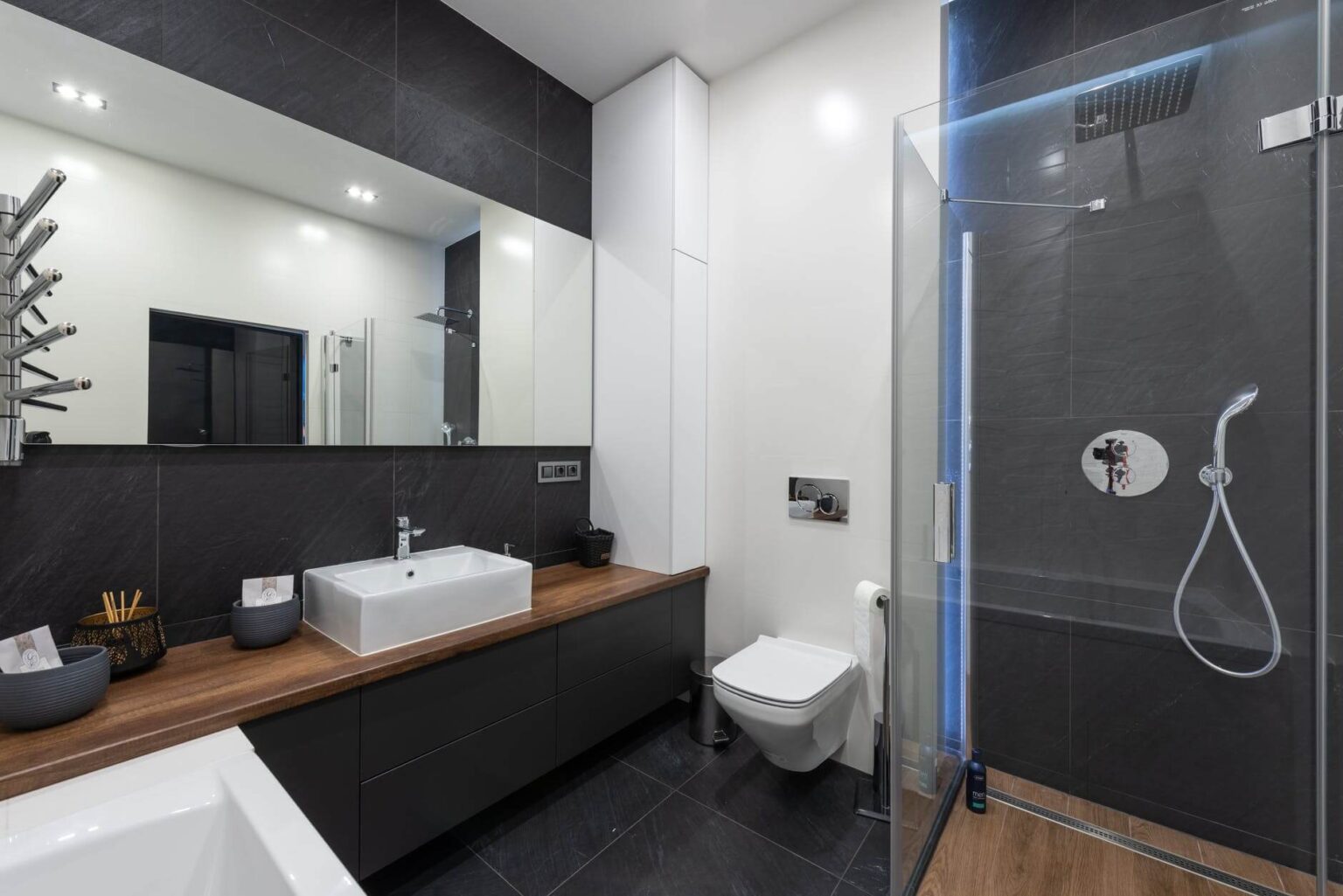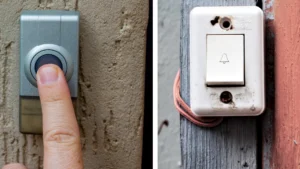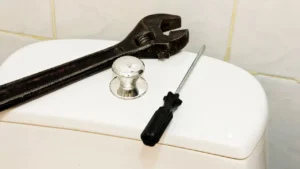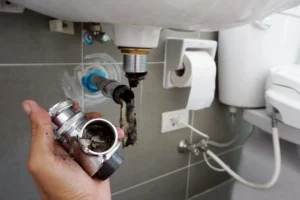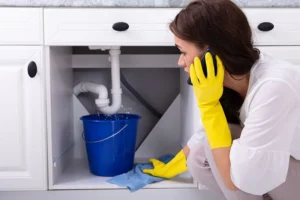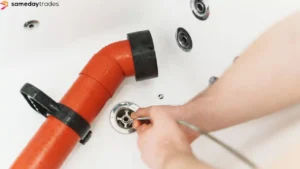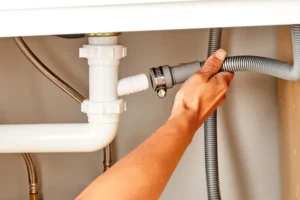Waiting for hot water can feel like an eternity in our daily rush. A startling fact: instant hot water systems can significantly cut down this wait time. This article explores how such a system delivers hot water on demand and offers numerous benefits from efficiency to space saving.
Keep reading—you’ll want to hear this!
Types of Hot Water Systems
Hot water systems come in many shapes and sizes. Each has its own way to make sure you get hot water when you need it.
Storage Systems (pros and cons)
Exploring hot water systems reveals a variety of options, each with its own set of advantages and drawbacks. Among them, storage systems stand out for their straightforward approach to supplying hot water. These systems work by heating water and storing it in an insulated tank, ready for use when needed. Examining the pros and cons of storage systems, breaking down the essentials into a digestible format.
Pros
– Simple Operation: Easy to operate, making them a user-friendly option for many households.
– Reliable Supply: Ensure a constant supply of hot water, stored and ready for immediate use.
– Variety of Fuel Options: Can be heated using electricity, gas, solar, or a combination, offering flexibility.
– Lower Initial Cost: Generally less expensive upfront compared to continuous flow systems.
Cons
– Size and Space: Require significant space for the tank, which might be an issue in smaller homes.
– Heat Loss: Insulated tanks reduce but cannot completely prevent heat loss, leading to higher energy consumption.
– Limited Capacity: Once the hot water in the tank runs out, you must wait for the new supply to heat up.
– Higher Operational Costs: The constant reheating of water can lead to increased energy bills.
In summary, storage hot water systems offer a blend of reliability and simplicity but come with considerations regarding space, energy efficiency, and ongoing costs. Each household’s choice depends on balancing these factors against their specific needs and preferences.
Continuous Flow Systems (types and pros/cons)
Continuous flow systems, often referred to as instantaneous or tankless hot water systems, have gained prominence for their efficient method of heating water directly as it flows through the unit. They stand out for their capacity to provide hot water on demand without the need for a storage tank. These systems come in various types, including electric, gas, and solar-powered options, each with distinct advantages and potential drawbacks. Let’s break down these types to better understand their pros and cons.
| Type | Pros | Cons |
|---|---|---|
| Electric Continuous Flow Systems | Compact and easy to install. Ideal for small spaces or low-demand environments. | Can be more expensive to operate due to higher electricity prices. May not be suitable for large households. |
| Gas Continuous Flow Systems | More efficient than electric systems. Can handle high demand, making them suitable for larger households. | Requires access to natural gas. Installation may be more complex due to the need for venting. |
| Solar-Powered Continuous Flow Systems | Highly energy-efficient and environmentally friendly. Reduces energy bills significantly over time. | High initial setup cost. Efficiency can be weather dependent, potentially requiring a backup system. |
Choosing between these types hinges on several factors, including household size, energy availability, and budget constraints. Electric systems shine in small-scale applications, offering simplicity and convenience. Gas systems, on the other hand, cater well to larger homes with greater hot water needs, delivering efficient performance. Solar-powered options, while upfront more costly, emerge as the eco-conscious choice, promising long-term savings and reduced environmental impact.
Transitioning to the next section, it’s critical to weigh these pros and cons in light of your specific needs, as the advantages of instantaneous hot water systems like compact design, endless hot water supply, and energy savings come into play.
Electric, Solar, Gas, and Heat Pump Systems (advantages and disadvantages)
Exploring the different types of hot water systems reveals a variety of options, each with its unique set of benefits and limitations. The choice between electric, solar, gas, and heat pump systems often hinges on individual needs, environmental concerns, and budget constraints. Below is a concise overview, presented in a table format, to shed light on these options.
| Type | Advantages | Disadvantages |
|---|---|---|
| Electric Hot Water Systems |
– Readily available. – Relatively low upfront cost. – Can be installed indoors or outdoors. |
– Higheroperational costs due to electricity prices. – Less efficient compared to other systems. – Dependent on electricity, posing a problem during power outages. |
| Solar Hot Water Systems |
– Uses renewable energy, reducing carbon footprint. – Potentially significant savings on energy bills in the long run. – Government rebates available to offset initial setup costs. |
– High initial investment. – Requires sufficient roof space for solar collector panels. – Performance decreases on cloudy days, typically necessitating a backup system. |
| Gas Hot Water Systems |
– Lower operational costs compared to electric systems. – Faster heating times. – Can be more economical for larger households. |
– Installation may require significant alterations for gas connection. – Not as environmentally friendly as solar or heat pump options. – Subject to fluctuating gas prices. |
| Heat Pump Systems |
– Highly efficient, using less electricity by extracting heat from the air or ground. – Eligible for government rebates, in certain cases. – Operates effectively in a range of climates. |
– Higher upfront costs than traditional electric systems. – May require a temperate environment to operate optimally. – Noisy operation compared to other systems. |
Each system presents a unique profile of efficiency, cost, and environmental impact. Users must weigh these factors against their personal preferences, home setup, and budget. Whether prioritising the eco-friendly attributes of solar systems, the reliability of gas, the affordability of electric, or the innovation of heat pumps, the decision ultimately rests on aligning these systems’ features with the user’s expectations and requirements.
Advantages of Instantaneous Hot Water Systems
Instant hot water systems bring hot water to your tap fast and keep it coming. They save space, cut down on waste, and are kind on your bills.
Compact and space-saving
Instant hot water systems are a great choice for small homes and apartments. They don’t need a big tank to store water, so you save a lot of space. This is perfect for those who have limited room.
You can fit these systems in tight spaces like under sinks or in closets. Professional plumbers often suggest these units for renovations or new builds where saving space is key.
Hiring a plumber to install an instant hot system means you also get advice on the best spot for it, keeping your home neat and tidy. Space won’t be an issue anymore, making it easier to enjoy hot water anytime without sacrificing valuable area in your home.
Next, let’s talk about why you’ll always have enough hot water with this system.
Never running out of hot water
With an instant hot water system, you’re always in for a warm welcome – no matter the time of day. Imagine it’s the peak of winter, and hot showers are essential; these systems keep the warmth flowing.
They work by heating water only as needed. So, whether you’ve got guests over or everyone at home decides it’s bath night at the same time, there’s no stress about using up all the hot water.
Deciding to hire a plumber to install this type of system can be a smart move for convenience and continuous comfort in your home. It means not having to manage who showers when or rush through your shower time.
Plus, if you’re keen on those lengthy winter baths that ease all worries away, an instantaneous system ensures your relaxation isn’t cut short by cold surprises.
Energy-efficient
Instant hot water systems use less energy. They heat water only when you need it. This means you do not waste money heating water all day. Instant systems are smart for the environment and your wallet.
You might find it cheaper to run these systems over time. Some folks save on their energy bills each year after they hire a plumber to switch to an instant system. Less energy use also means less harm to our planet.
Durable
Saving energy also means less wear and tear on the equipment. This is where instant hot water systems shine in terms of durability. Made to last, these systems don’t have a tank that corrodes over time.
Without a tank, there’s no risk of leaks from long-term use or rust eating away at the system. They are built tough.
You might need to hire a plumber less often with an instantaneous system. These units can keep going strong for more than 20 years if looked after well. Regular maintenance is simple, yet it makes a huge difference in lifespan compared to traditional hot water tanks that might only last half as long.
Reduced water waste
Instant hot water systems mean less water going down the drain. In homes, waiting for cold water to get warm is common. This waiting wastes lots of water. With instant systems, hot water comes out fast.
So, you don’t need to let the tap run and waste.
You might need to hire a plumber to set it up right. They’ll make sure no water gets wasted. Plus, these systems are good for our planet too. Less waste means we’re taking care of our environment better.
Considerations When Choosing an Instant Hot Water System
Picking the right instant hot water system means thinking about where it’ll fit and how much you want to spend. It’s also smart to look at different brands and think about how long they last.
Installation options
You might need to hire a plumber for setting up your instant hot water system. They can help choose the best spot in your home, making sure it’s safe and works well. It could be inside or outside, depending on your house layout and the type of system you pick.
The right installation spot matters for efficiency and safety.
Different systems have their own needs for space and connections. For example, if you go for a gas model, it must be placed where it can easily connect to your home’s gas line. Electric models need a proper electrical outlet.
The plumber will check all this and make sure everything is set up right.
Brand and pricing
Picking the right brand for your instant hot water system matters a lot. Some brands are known for their quality and reliability, while others might offer better prices. The cost varies widely, depending on these factors.
It’s not just about finding the cheapest option; you also want to make sure it will last and do the job well.
Before deciding, think about hiring a plumber to advise on which brand suits your home best. They can help figure out what system meets your needs without going over budget. Costs can include the price of the unit plus installation fees.
So, getting professional advice can save you money in the long run.
Longevity
Instant hot water systems are built to last. Most models come with a warranty that goes up for years, making them a smart choice. If you’re thinking about getting one, you won’t have to worry about replacing it any time soon.
They’re solid and can handle the daily demands of your home or business.
Choosing the right instant hot water system means less stress in the long run. It’s a good idea to hire a plumber who knows what they’re doing. They can help make sure your system is set up right from the start, which helps it last even longer.
Conclusion
So, thinking about getting instant hot water in your home? Great choice. These systems save you space, keep the hot water coming without end, cut down on energy use, last longer, and help you waste less water.
Before you make up your mind, look into installation types, different brands and their prices, and how long they last. Choosing an instant hot water system could be a smart move for comfort and savings alike.
Time to call a plumber and get started!

